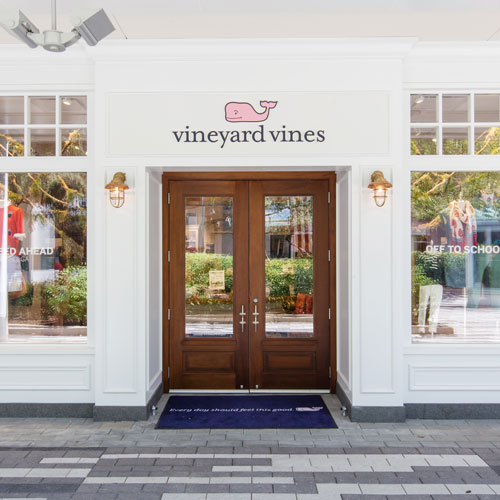All across Brazil, people waved flags, sang, and chanted in celebration. It was October 2, 2009, and the International Olympic Committee had just made its announcement: Rio de Janeiro would host the 2016 Summer Olympics. In beating its fellow nominees of Chicago, Madrid, and Tokyo, Rio would welcome the summer games to its continent for the first time.

Not only did the announcement unleash a massive celebration—it set the hospitality industry into overdrive. According to The Wall Street Journal, local officials projected 75 new hotels and 19,500 new rooms (representing a 60 percent increase) by August 2016. Major brands clamored to capitalize on the opportunity in a global hot spot known for top beach destinations, such as Ipanema and Copacabana.
Soon after the news was released, AccorHotels—Europe’s biggest hotel company—announced plans to move forward with a $1.5 billion surge in the Brazilian market. In 2012, the company bought Grupo Posadas’ 15-hotel regional portfolio for a reported $275 million, adding more than 2,600 rooms to its base of 164 existing hotels in South America.
The move fit nicely into AccorHotels’ growth plan in leading and emerging markets worldwide.

In South America, the Grupo Posadas properties complemented AccorHotels’ brands of Sofitel, Pullman, Novotel, and Mercure to solidify the hospitality behemoth as Brazil’s leading hotel chain. This reflects what AccorHotels is doing worldwide as it increases production with 230 ongoing projects across all brands. The company is also working hard to increase the number of its upscale hotels in the region.
Paulo Mancio is AccorHotels’ senior vice president of technical construction and design for the South American region. He leads all regional projects in Brazil and South America, and says the area is one of growing importance for his team.
“We expect to reach 500 hotels in South America by 2020,” he says. “Taking into account the maturity of the hotel market and the investment for tourism in the region, South America is big for us.”
Although all of South America is big for AccorHotels, Brazil is key. The company has 263 hotels in operation in South America; 230 of which are in Brazil. As the 2016 Summer Olympics approach, Mancio’s attention is increasingly turned towards Rio de Janeiro, where the company operates 27 hotels and 5,180 rooms. Mancio and his colleagues will open 19 more in the next four years with an investment of $700 million that he says will generate about 800 jobs.
Beyond Luxury Suites
Like many of the company’s properties, Caesar Park Rio de Janeiro Ipanema Managed by Sofitel and Sofitel Rio de Janeiro Copacabana participate in AccorHotels’ Planet 21 program. The comprehensive sustainability plan includes seven pillars and 21 commitments that guide AccorHotels’ growth with eco-friendly principles. The company has sustainable policies and offers the opportunity for guests to make simple choices to conserve resources during their stay.
To date, AccorHotels has provided funding to plant more than 500,000 trees. Additionally, AccorHotels participates in ECPAT (End Child Prostitution, Pornography, and Trafficking of Children for Sexual Purposes) in partnership with the Brazilian government. Moreover, 30,000 company employees are trained in prevention practices and reporting methods.
Two of Mancio’s most important projects in Rio are Sofitel Rio de Janeiro Copacabana and Caeser Park Rio de Janeiro Ipanema Managed by Sofitel. At the Copacabana property, AccorHotels is performing a full, major renovation along the chic and world-famous beach. The luxury hotel boasts four restaurants, two pools, gyms, saunas, and a hammam, or Turkish bath.
“Everyone that comes to Rio wants to come to this beach, and we’re transforming the property into something special,” Mancio says. In the first phase, AccorHotels will focus on a flawless technical installation to prepare the hotel for the Olympic Games. Then, in the second phase, the entire structure and all facilities will receive a top-to-bottom refresh.
AccorHotels landed the other site—Caeser Park Rio de Janeiro Ipanema—through the 2012 Grupo Posadas deal. There, Mancio’s teams are preparing for another two-phase upgrade of the 222-room, 29-suite property. He says AccorHotels’ design team is working out the details, but will focus on bringing together “classic and contemporary hotel architecture,” to provide “vast, inspirational spaces and French touches that will fill guests with wonder during their stay.”
Clean concepts and natural light, combined with hardwood floors, weave in the tones of the world famous beach to reflect the unique Rio atmosphere. The hotels will also leverage technology to enhance the guest experience.
“Technology and comfort are our differentiators,” Mancio says. “Our guests should feel welcomed, expected, unique, and privileged.”
The upgrades will allow AccorHotels customers to expedite online check-in and check-out with a single application that also provides digital content from magazines. Guests can also use the app to track their booking and contact housekeeping.
As the Olympics draw to a close, AccorHotels will use its experience in Rio to prove what else is possible. With $6 billion in annual revenue and properties in 92 countries, the company is poised to replicate its success in South America in other parts of the world by expanding into other emerging markets, experimenting with China and Iran, and also setting its sights on the United States.
Back in Rio, the company’s bet is already paying off thanks to exposure from the 2014 World Cup and the hype from the upcoming Olympic Games. In December 2015, more than 850,000 tourists flocked to Rio for a New Year’s Eve celebration, injecting about $686 million into the local economy as hotels neared total occupancy. Now, as Rio prepares to takes center stage and TV crews beam images of the Marvelous City around the world, its stock is set to climb even higher.


